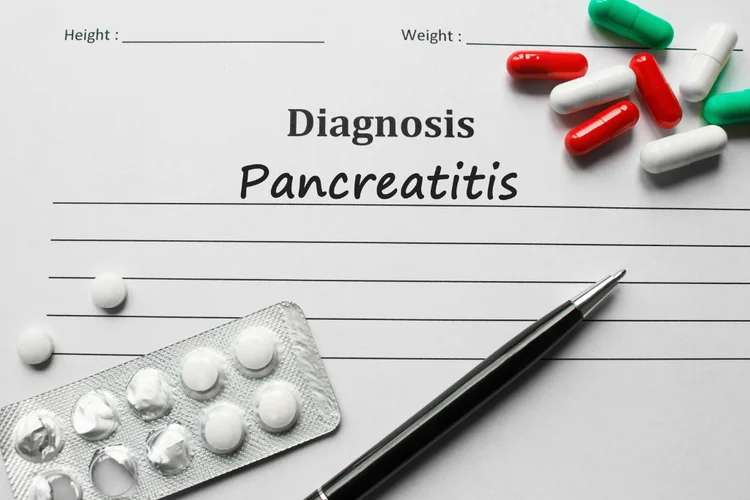What Is Tirzepatide?
Tirzepatide is a weekly injectable prescription medication
that may be prescribed to adults who require medical support with metabolic
health, particularly those with elevated BMI or conditions affecting
how the body processes glucose.
It works by acting on two naturally occurring hormones involved in appetite
control and blood sugar balance: glucagon-like peptide-1 (GLP-1) and glucose-dependent
insulinotropic polypeptide (GIP). Other medications in the GLP-1
class include semaglutide, liraglutide, and dulaglutide, though these target
only the GLP-1 receptor.
In Singapore, tirzepatide requires a prescription and medical assessment
before use. Pricing generally starts from $400 and varies with dosage adjustments
over time.

Tirzepatide Mechanism of Action: How Does It Work?
By activating both GLP-1 and GIP receptors simultaneously, tirzepatide influences multiple metabolic pathways:
- Reduces hunger signals – Targets brain receptors that control appetite, leading to decreased food intake
- Delays stomach emptying – Prolongs digestion so food remains in the stomach longer, helping stabilise post-meal glucose levels
- Increases insulin response – Prompts the pancreas to release insulin when glucose levels are elevated
- Lowers glucagon output – Reduces the hormone that triggers glucose release from the liver between meals
Tirzepatide is usually prescribed alongside lifestyle modifications including balanced eating and regular exercise for more sustainable effects.
Who Might Be Suitable for Tirzepatide?
Tirzepatide may be suitable for those seeking additional support for metabolic health, including those who:
- Have not achieved desired outcomes with diet, exercise, or other first-line approaches alone
- Experience side effects or contraindications with alternative treatments
- Present with elevated BMI together with related conditions such as hypertension or dyslipidaemia
A comprehensive medical assessment is necessary before tirzepatide can be prescribed. It is typically part of an integrated care plan rather than a standalone treatment.
Who May Benefit from Tirzepatide?
Several features make tirzepatide a practical option for individuals requiring ongoing metabolic support:
- Once-weekly dosing, which is easier to maintain compared to medications that require daily administration.
- Prefilled injection pens, allowing for self-administration at home without the need for regular clinic visits.
- Gradual dose adjustment, allowing your doctor to increase the dose incrementally based on your comfort and needs.

Potential Tirzepatide Side Effects
Like other medications, tirzepatide may cause side effects. These effects are usually mild to
moderate and often ease as your body adapts to the treatment.
Common side effects can include:
- Reduced appetite
- Indigestion
- Nausea
- Diarrhoea
- Vomiting
- Constipation
Less common but more serious side effects can include:
- Pancreatitis
- Severe digestive issues
- Low blood sugar, especially when combined with other diabetes medicines
- Allergic reactions such as rash, itching, swelling of the face or throat, difficulty breathing, or dizziness
You should seek urgent medical attention if you experience severe abdominal pain,
signs of an allergic reaction, or symptoms that persist or worsen over time.
Disclaimer: This is not a complete list of side effects. Always
consult your doctor if you notice any abnormal or severe symptoms or have
concerns while using tirzepatide.
Who Should Avoid Tirzepatide?
Tirzepatide is not suitable for everyone and is generally avoided in people with the following conditions:
- Severe gastrointestinal problems such as gastroparesis, since tirzepatide slows stomach emptying and may worsen symptoms
- History of pancreatitis, due to the risk of recurrence
- Personal or family history of medullary thyroid carcinoma or multiple endocrine neoplasia syndrome type 2 (MEN 2), as it may raise the risk of thyroid tumour development
- Type 1 diabetes, as tirzepatide is not approved for this condition
It is advisable to consult a doctor to determine whether tirzepatide is appropriate for you.

Is Tirzepatide Available in Singapore?
Tirzepatide is available only by prescription in Singapore and
cannot be purchased over the counter. A medical
consultation is required to determine suitability based on your health,
medical history, and treatment goals.
If prescribed, your progress will be monitored through follow-up consultations,
allowing your doctor to adjust the dosage if needed and to ensure the treatment is
used appropriately under professional supervision.
Tirzepatide Price in Singapore
| Medication | Price* |
|---|---|
| Tirzepatide | From $479.60 / monthly dose |
The cost depends on dosage and clinic. It is advisable to check with your chosen clinic.
Why Choose Us?








Navigate Easy With Google Maps
Health Screening Singapore (Anson House)
Nearest MRT: EW15 Tanjong PagarHealth Screening Singapore (Camden Medical Centre)
Nearest MRT: TE13 Orchard BoulevardHealth Screening Singapore (CPF Jurong Building)
Nearest MRT: NS1/EW24 Jurong EastFrequently Asked Questions (FAQs)
Tirzepatide is available only with a prescription from a licensed healthcare professional. It cannot be purchased over the counter and should be used under medical supervision. A medical consultation is necessary to review your health, medical history, and treatment goals before it can be prescribed.
Tirzepatide may be considered for adults who require additional support for metabolic health. This includes individuals with elevated BMI or those who are overweight or obese with related health conditions such as raised blood pressure or abnormal lipid levels. Eligibility depends on overall health, medical history, and response to other approaches. A consultation is required to determine suitability.
Tirzepatide is not recommended for people with a personal or family history of medullary thyroid carcinoma or multiple endocrine neoplasia syndrome type 2 (MEN 2). It is also generally avoided in those with a history of pancreatitis, severe gastrointestinal conditions such as gastroparesis, or known allergies to its ingredients. It is advisable to consult a doctor who can determine whether tirzepatide is appropriate for you based on your medical history.
The cost of tirzepatide in Singapore varies depending on the provider, dosage, and whether it is part of a structured medical programme. For the most up-to-date estimate, it is best to check directly with your chosen clinic or healthcare provider.
Yes, tirzepatide is available in Singapore by prescription only for individuals requiring support with metabolic health, including appetite regulation and blood sugar balance. It must be prescribed by a licensed healthcare provider following a consultation to assess medical history and treatment suitability. Regular follow-up appointments are recommended to monitor progress and adjust dosage as needed.
Treatment with tirzepatide may be continued as long as it remains beneficial and well tolerated. The duration differs for each person depending on treatment goals, response, and any side effects. It requires regular review by your doctor which will help determine whether therapy should be continued, adjusted, or stopped.
Tirzepatide is not directly associated with kidney damage when taken as prescribed. However, side effects such as nausea, vomiting, or diarrhoea may lead to dehydration, which can temporarily affect kidney function. Those with pre-existing kidney conditions may require closer monitoring. It is advisable to discuss your kidney health with your doctor before starting treatment.
Tirzepatide is given as a subcutaneous injection, which means it is injected into the fatty layer just under the skin. Common sites include the abdomen, thigh, or upper arm. Rotating the injection site each time helps reduce the risk of irritation or skin changes. Always follow your doctor’s advice regarding where and how to inject, as well as how to use the prefilled pen correctly.
There are no specific foods that must be strictly avoided while taking tirzepatide. However, it is best to avoid greasy, spicy, or high-fat meals, as these may worsen digestive side effects such as nausea. Eating smaller, balanced meals and maintaining a healthy diet can improve tolerability and support your treatment goals. Always follow your doctor’s or dietitian’s guidance on foods to avoid.
